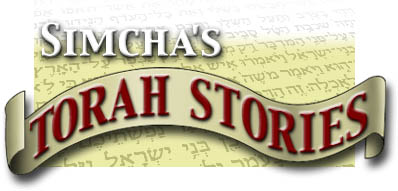Simcha's Torah Stories - Behar

Parshat Behar
COSTLY WORDS
This is a beautiful gift shop sir.
Thank you very much, young man.
Sir, may I ask you how much this tallis costs?
That tallis is all wool and it costs sixty dollars young man.
Thank you very much, sir. How much does this shofar cost?
That shofar is a very special one. It costs thirty-five dollars.
I see. And how about this menorah? Is it real silver?
No, it is only silver plated, young man.
How much does it cost?
I will sell that to you for fifty dollars, young man.
That seems like a good price. How much is this mezuzah cover?
You can have it for ten dollars, young man.
Thank you very much for answering all of my questions, sir. Do you mind if I ask you one more price?
Not at all, young man. May I ask you something first?
Sure.
Do you intend to buy any of these things?
Ummm. Well. Uh. Not really.
I hope I didn't make you feel badly by asking. I don't mind answering all of your questions. I will tell you the price of everything in the store if you like. I just wanted to teach you a halacha (Torah law).
Which halacha is that sir?
The halacha that forbids onas devorim.
What is onas devorim? It sounds pretty serious.
It is young man. Rav Yisrael Meir Kagan, who is known to us by the name of his book, Chofetz Chaim, lists a few definitions of onas devorim in the opening chapter of his book. The source of this law is actually a verse in this week's Torah portion. "You shall not cause your fellow Jew aggravation" (Vayikra 25:17). Any words that will cause distress to a fellow Jew, anger him, scare him, embarrass him, or cause him pain fall into the category of onas devorim.
Did I say something wrong sir?
The Mishnah (Bava Metzia 4:10) lists examples of onas devorim. It states, "Do not ask the price of an object if you do not intend to buy." It seems like a very minor thing to us. However, the Mishna is telling us how sensitive we must be to others' feelings. The storekeeper may be busy, or tired, or just not feel like answering questions.
Does our sages list any other examples of onas devorim?
Yes, there are a few. Do not remind a person of sins that he committed in the past. Do not ask someone a question that you know he cannot answer. Do not give someone bad advice or false directions.
I never realized that these things were forbidden.
That is why I told you, young man. The Torah is teaching us that our words are very powerful. A slip of the tongue can embarrass someone, hurt their feelings, or even make them cry. So much aggravation and even hatred can be avoided by thinking carefully before we speak. On the other hand, a kind word of appreciation or encouragement can lift a person's spirits. Compliments have changed people's whole lives.
Sir, you corrected me in such a gentle way that I actually feel good about it. You are really careful with your speech.
What is your name, young man?
Avi, sir.
Avi, the Torah tells us that we should only correct a person if we think he will listen to the correction. I saw from the minute that you entered the store, that you are a fine young man. When you made the mistake, I just knew that you would be interested in improving yourself.
Sir, we should both have only good things to say about each other.
Avi, I think you realize that your words are more valuable than anything in this store.
And I won't even ask you how much they cost, sir.
Ohr Somayach's Youth Page r
Editor: Reuven Subar
General Editor: Rabbi Moshe Newman
Production Design: Michael Treblow






